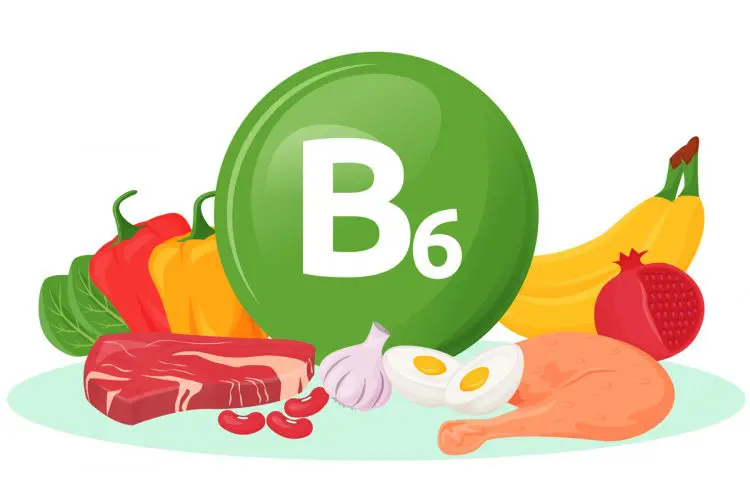If there are two things that all bodybuilders need, it’s sleep and testosterone. Sleep is critical for post-training repair and recovery – it’s basically when your body grows. Too little sleep can have a significant impact on your performance and your progress.
Testosterone is a crucial hormone for muscle growth. It enhances protein synthesis, which is to say, it helps you recover faster and more fully from intense training. That’s why some lifters use exogenous (supplementary) testosterone in the form of steroids. It means that you can train harder and recover faster.
While there are supplements you can use that may enhance either sleep and testosterone production, there is one that promises to do both – ZMA. This supplement is popular and has been around for over 20 years, which strongly suggests it has some worthwhile benefits.
In this article, we explain what ZMA is and how to use it.
What is ZMA
ZMA is short for Zinc/Magnesium Aspartate, both of which are essential minerals. Most ZMA supplements also contain pyridoxine, which is also known as vitamin B6. While formulations vary between products and manufacturers, most ZMA supplements provide:
- Zinc monomethine: 30 mg — 270% of the Reference Daily Intake (RDI)
- Magnesium aspartate: 450 mg — 110% of the RDI
- Vitamin B6 (pyridoxine): 10–11 mg — 650% of the RDI
While all of these substances are naturally occurring, ZMA was originally formulated during the mid-late 1990s by steroid and nutrition guru Victor Conte. Conte promoted ZMA as an alternative to steroids, but that was largely hype.
While ZMA can help increases testosterone levels, it cannot match the power of anabolic steroids. However, Conte’s exaggerated claims aside, ZMA is still a valuable supplement for athletes and bodybuilders (1).
Related: Can ZMA Help Build Muscle And Support Sleep
What Do ZMA Supplements Do?
Unlike a lot of supplements, ZMA has a very short ingredients list, but zinc, magnesium, and vitamin B6 are all potent compounds with a variety of functions.
The main functions of the compounds in ZMA are:
Zinc

Zinc is a trace mineral that is involved in over 300 body functions, including enzymatic reactions, nutrient metabolism, digestion, wound healing, and immunity (2). The main dietary sources of zinc include:
- Beef
- Chicken
- Dairy products (Swiss cheese, yogurt, milk, cheddar cheese, mozzarella)
- Legumes (baked beans, kidney beans, chickpeas, white beans, mung beans)
- Nuts (cashews, almonds, pistachios, pecans, walnuts)
- Oatmeal
- Pork
- Seeds (pumpkin, squash, pine nuts, chia, flaxseeds)
- Shellfish (oysters, crabs, lobster, shrimp
Because your body doesn’t store zinc, you need to consume it regularly to avoid developing a deficiency. Low levels of zinc are linked to decreases in thyroid hormone and testosterone production. Low levels of thyroid hormone can cause fat gain, while low T-levels can cause reduced sex drive, decreased muscle mass, and fatigue.
While zinc won’t raise your testosterone levels if you are already consuming enough, a zinc deficiency could cause your T-levels to fall below normal levels. As most people do not get enough dietary zinc, supplementation can help plug this nutritional gap.
Related: Best Zinc Supplements Reviewed
Magnesium

Like zinc, the mineral magnesium has hundreds of functions, including energy production and muscle and nerve function. However, its main benefit, and why ZMA is so popular, is that it is also a non-pharmaceutical sleep aid. It relaxes both the muscles and the nervous system so you can fall asleep more quickly and stay asleep for longer.
Magnesium also works alongside zinc to normalize testosterone levels. Magnesium stops testosterone binding to sex hormone-binding globulin (SHBG), which renders it inactive. This means there is more circulating or free testosterone, which essentially increases the bioavailability and potency of this all-important hormone.
Dietary sources of magnesium include:
- Avocados
- Bananas
- Dark green vegetables (spinach, broccoli, kale, collard greens, swiss chard)
- Fish (halibut, salmon, mackerel, tuna, pollock)
- Legumes (black beans, edamame, kidney beans)
- Nuts (cashews, peanuts, almonds, brazil nuts)
- Raisins
- Seeds (pumpkin seeds, sunflower seeds, flaxseeds)
Intense workouts can lead to magnesium depletion, and taking ZMA can help prevent a deficiency. Magnesium deficiencies are common, especially in exercisers, as magnesium is heavily utilized in muscle contractions.
Related: Best Magnesium Supplements Reviewed
Vitamin B6
B6 is a water-soluble vitamin which means your body cannot store it. It is involved in many biological processes, including the formation of neurotransmitters and nutrient metabolism.
Vitamin B6 is especially important for converting carbohydrates and glucose into a useable source of energy. It also plays a part in the formation of red blood cells, which your body uses to transport oxygen around your body.
While vitamin B6 won’t affect your ability to sleep or have much of an impact on your testosterone levels, a deficiency could make you more susceptible to fatigue. The B6 in ZMA could help you train harder and longer, leading to better progress.
Good nutritional sources of vitamin B6 include:
- Bananas
- Milk
- Oats
- Peanuts
- Pork
- Poultry, such as chicken or turkey
- Some fish
- Some fortified breakfast cereals
- Soya beans
- Wheatgerm
Related: Best Men’s Multivitamins
Magnesium and Zinc Benefits for Men

While women can safely take ZMA, because of its effect on testosterone, it’s generally viewed as a supplement for men. Because ZMA is non-steroidal, taking it won’t cause masculinization in women. However, it’s safe to say that this supplement is more beneficial for male exercisers.
The benefits of ZMA for men include:
Normalized/optimized testosterone production
Zinc deficiencies are common in exercisers, as it cannot be stored and is lost during perspiration and urination. Lack of dietary zinc is commonly linked to reduced testosterone production. Studies show that increasing zinc intake can help restore testosterone levels to normal. It also prevents testosterone from aromatizing and turning into estrogen.
The benefits of elevated levels of testosterone include:
- Increased strength and muscle size
- More energy and greater endurance
- Less body fat
- Improved athletic performance
- More motivation, confidence, and a more positive outlook on life
- Increased sex drive
Better sleep
Sleep is crucial for exercise performance, recovery, and progress. Sleep is when your body gets busy repairing and building your muscles and restocking your energy supply.
However, after a stressful day at work, it can be hard to relax, unwind, and sleep. Most people should get 7-9 hours of sleep per night, but many of us struggle to do this and undermine our training progress as a result.
Some sleep deficiencies are due to poor lifestyle factors, such as not going to bed early enough or watching TV late into the night instead of sleeping. However, a lot of people are just bad sleepers and find it hard to get to sleep or can’t sleep for very long.
The magnesium in ZMA should help you relax and fall asleep sooner and stay asleep longer, improving the overall quality of your sleep.
Sleeping better means faster, more complete recovery from exercise, more energy, increased fat burning, a reduction in the formation of the catabolic stress hormone cortisol, increased insulin sensitivity, and a better quality of life in general.
However, because ZMA is not a pharmaceutical sleep aid, it is not addictive and won’t leave you with brain fog the following day. Instead, you should wake up feeling refreshed and ready to face the day ahead.
Weight loss and fat burning
ZMA may help you get and stay lean. Testosterone is a known fat burner, and better sleep also decreases fat storage by improving insulin sensitivity.
However, it’s also thought that zinc has an appetite suppressing effect, helps lower blood glucose, and could also boost resting metabolic rate. In studies, people with higher zinc intakes lost more fat and weight than those with a zinc deficiency (5).
The Best Time of Day to Take Zinc and Magnesium Supplements
Because ZMA is such an effective sleep enhancer, it makes sense to take it shortly before going to bed. You could take it at other times, but because of the relaxing effects of magnesium, that could be detrimental to your job or workout performance.
Depending on the potency of your product, you will probably get the best results from ZMA if you take 2-3 capsules about 30 minutes before going to bed. This will give the product time to start working so that you are ready for sleep shortly after hitting the hay.
Ideally, ZMA should be taken on an empty stomach to avoid delaying digestion. It should not be consumed at the same time as anything containing calcium (i.e., milk, cheese, yogurt, etc.) as zinc interacts with calcium and loses some of its potency.
The effects of ZMA are cumulative, which means you should plan on taking it for several months. The sleep benefits could kick in overnight (pun intended), but it will take a lot longer for your T-levels to rise. Because ZMA won’t take your testosterone levels above the high side of normal, there is no need to cycle this product, and you can use it indefinitely.
Zinc and Magnesium Aspartate Side Effects
Believe it or not, you are probably already taking ZMA as zinc, magnesium, and vitamin B6 are present in many of the foods you eat. As such, it should not cause any unwanted side effects. This supplement has been around for over two decades, so it’s reasonable to assume it’s largely safe to use.
That said, some sensitive users may experience:
Vivid dreams– ZMA helps you sleep longer and deeper, which may make your dreams more vivid. A lot of ZMA users report extremely weird dreams. Take this side effect as a sign your ZMA supplement is working!
Stomach issues – in some cases, taking too much zinc can cause digestive upsets, including nausea, abdominal cramps, and diarrhea.
Tingling/numbness in the hands of feet – vitamin B6 is involved in the function of your nervous system. As such, some people may experience nighttime tingling or numbness of the hands or feet.
In most cases, reducing your dose of ZMA should alleviate existing and prevent further unwanted side effects. Also, check that you aren’t inadvertently consuming too much zinc, magnesium, or vitamin B6 in your diet. For example, if you eat oysters by the handful, taking ZMA could mean you already have a high zinc intake, and taking ZMA tips you over the edge.
ZMA for Bodybuilding – Wrapping Up
When he invented ZMA, Victor Conte said that it was a supplement to rival anabolic steroids. However, the athletes (mostly baseball players) under his care were actually taking steroids, and he was just trying to attribute their success to his newly formulated product.
However, that doesn’t mean that ZMA is not useful. If you are otherwise deficient in zinc, magnesium, or vitamin B6, you’ll undoubtedly feel the benefit of this supplement.
It can help you sleep better, recover faster between workouts, and could help raise and normalize your testosterone levels.
That said, like all supplements, ZMA will only really work if you are paying your dues in the gym and the kitchen; it’s not a bodybuilding miracle in capsule form. However, if you are training hard and eating right, and looking to get more from your workouts, ZMA could help.
References:
1. Journal of The American Society of Exercise Physiologists: Effects of a Novel Zinc-Magnesium Formulation on Hormones and Strength https://www.asep.org/asep/asep/BrillaV2.PDF
2. PubMed: Zinc Acutely and Temporarily Inhibits Adrenal Cortisol Secretion in Humans. A Preliminary Report https://pubmed.ncbi.nlm.nih.gov/1702662/
3. PubMed: Effect of magnesium supplementation on strength training in humans https://pubmed.ncbi.nlm.nih.gov/1619184/
4. PubMed: Effects of Vitamin B6 Deficiency on the Composition and Functional Potential of T Cell Populations https://pubmed.ncbi.nlm.nih.gov/28367454/
5. PubMed: Effects of Zinc Supplementation on The Anthropometric Measurements, Lipid Profiles and Fasting Blood Glucose in The Healthy Obese Adults https://pubmed.ncbi.nlm.nih.gov/24312830/
Tip: If you're signed in to Google, tap Follow.












